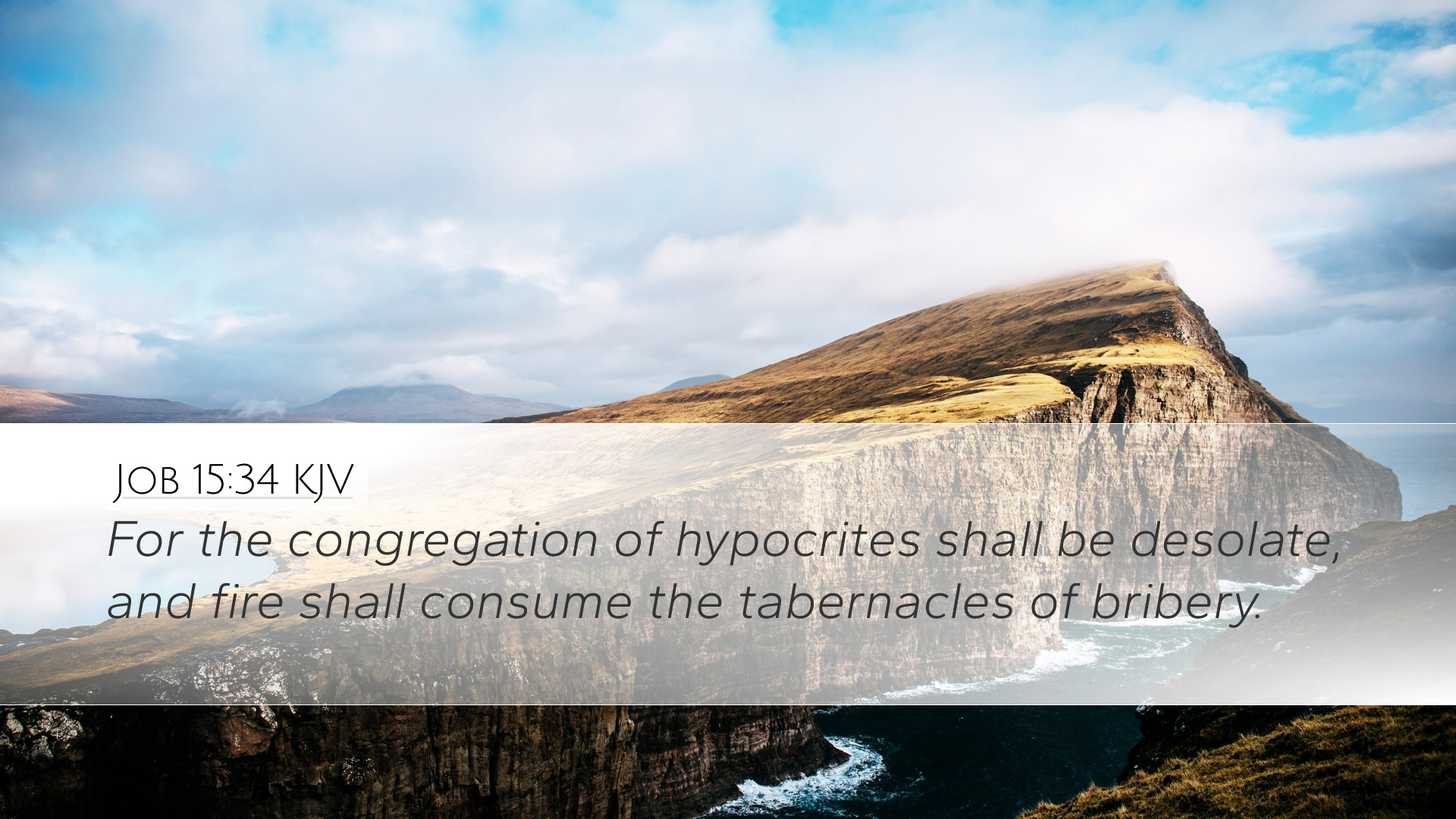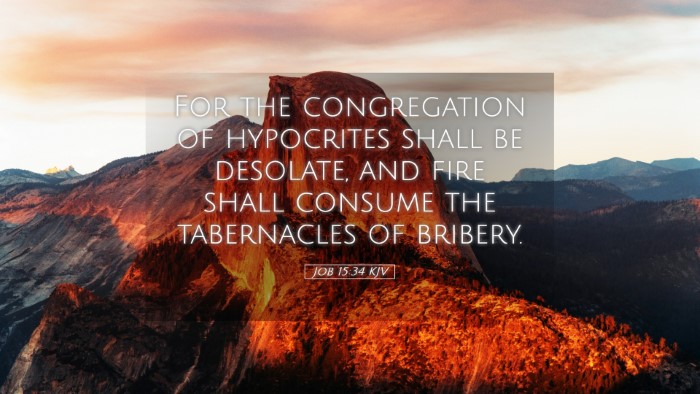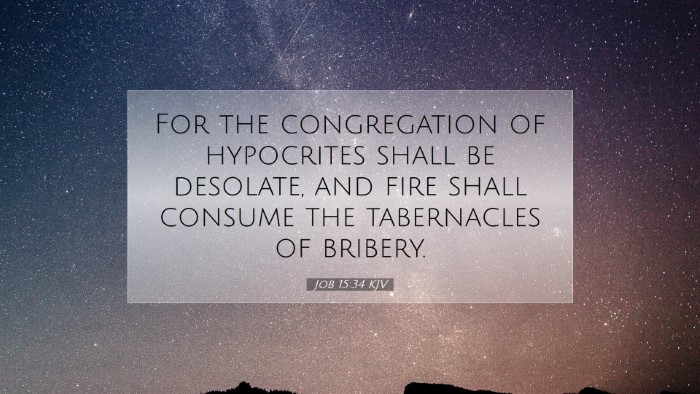Commentary on Job 15:34
Scripture Reference: Job 15:34 - "For the congregation of hypocrites shall be desolate, and fire shall consume the tabernacles of bribery."
This verse, spoken by Eliphaz the Temanite, highlights several critical themes in the book of Job, especially regarding hypocrisy, divine judgment, and the fate of the wicked. The rich literary and theological dimensions of this passage warrant an in-depth exploration rooted in historical context and spiritual application.
Contextual Background
In the dialogues between Job and his friends, Eliphaz represents one perspective of traditional wisdom, asserting that suffering results from sin and that the righteous cannot suffer unjustly. His remarks here illustrate a worldview that associates righteousness with prosperity and wickedness with ruin.
The Nature of Hypocrisy
Matthew Henry emphasizes that Eliphaz's accusation against the "congregation of hypocrites" serves as a broader reflection on the nature of hypocrisy. He observes that those who falsely represent themselves before God and man are destined for desolation. Hypocrisy undermines true worship and relationship with God.
Albert Barnes adds to this by suggesting that hypocrisy is not merely a personal failing but a social one, where entire congregations can be led astray by deceit. Barnes interprets the 'congregation of hypocrites' as those who gather in pretense, lacking genuine faith and integrity, ultimately leading to divine judgment.
The Consequence of Hypocrisy
The verse articulates a stark warning that the hypocritical community is destined for destruction: "fire shall consume the tabernacles of bribery." This metaphor of fire represents a purification process, akin to God's judgment that refines but can also annihilate that which has no integrity.
Adam Clarke notes that the fiery judgment refers not only to literal destruction but also to the spiritual and moral decay that follows the wicked. He implies that systems built on bribery and deceit will ultimately find themselves dismantled by divine justice. Clarke sees this as a clear indication that God’s righteousness will prevail and that evil cannot stand in His presence.
The Role of Divine Justice
The assertion that "fire shall consume" ties into the larger theme of divine justice that runs throughout the Book of Job. Eliphaz seems to reflect a belief in retributive justice, where each individual receives recompense for their actions within their earthly life. Job’s own struggles challenge this notion, demonstrating that faithfulness to God can coexist with hardship.
Henry expounds on this, discussing how the ultimate fulfillment of God’s justice may not always be visible in immediate circumstances but will be evident in the grand scheme of eternity. Therefore, this verse serves as a reminder to the faithful that despite the apparent thriving of the unrighteous, righteousness will eventually be vindicated.
Applications for Today
-
Self-Examination: This passage calls for introspection among believers regarding their own spiritual integrity. It urges individuals and communities to reflect on their motives and actions.
-
Understanding Judgment: It serves as a sobering reminder that God’s judgment is serious. The nature of divine justice is not only to punish but also to restore and purify those who seek Him sincerely.
-
Encouragement to the Righteous: For the faithful, the verse instills hope that God recognizes the plight of the righteous and that they shall not be forgotten amid adversity.
Theological Reflections
From a theological perspective, Job 15:34 prompts readers to contemplate the nature of true righteousness versus mere appearances. The implications of hypocrisy challenge congregations to strive for authenticity in their faith. Pastors and leaders are encouraged to lead by example, ensuring a community grounded in truth, faith, and integrity.
Conclusion
Job 15:34 serves as a multifaceted verse offering profound insights into the nature of hypocrisy, divine justice, and the eternal consequences of earthly actions. As we consider the words of Job's friend Eliphaz, it is vital for scholars, theologians, and believers to approach this text with an open heart, seeking to apply its teachings in both personal and communal contexts.


